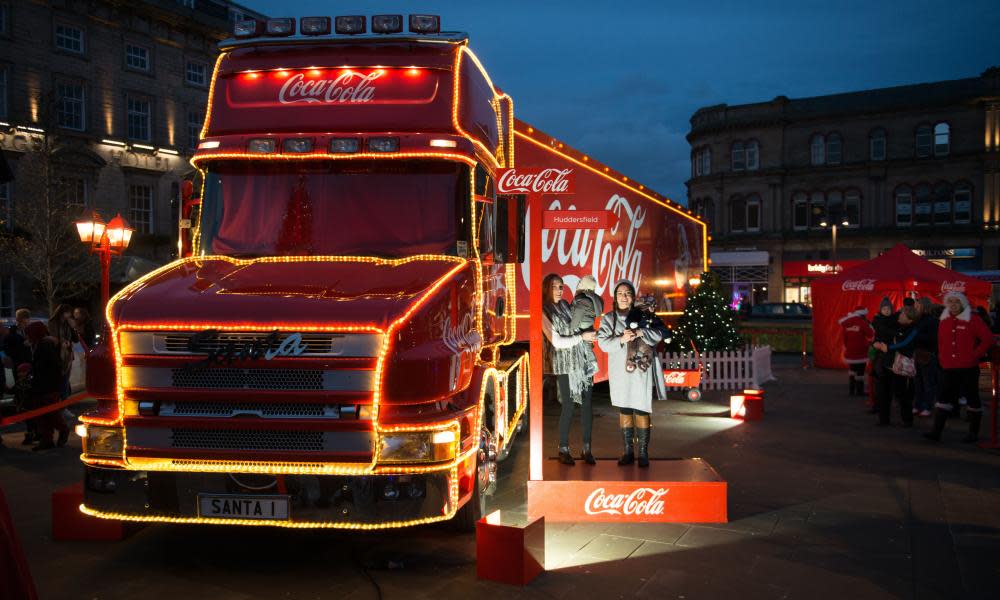It’ll be lonely this Christmas without the Coca-Cola truck

Holidays are coming, holidays are coming … unless, of course, you live in one of the 14 towns and cities pulled from the annual Coca-Cola Christmas truck tour amid health concerns. The tour sees the famous, bright red Coca-Cola truck arrive in towns as it has appeared in adverts since the early 90s – that is, in enough fairy lights to blind – to divvy up free 150ml cans of Coca-Cola, Coke Zero and Diet Coke. It kicked off last week in Glasgow, and will visit 24 neighbourhoods as opposed to last year’s 38, a downsizing of more than a third.
The truck has been touring the UK during the festive season since 1995, invited by a combination of local authorities, supermarkets and other landowners. But last year campaigners including Sugar Smart successfully prompted Public Health England to issue a warning to local authorities about the impact of such promotions on diet and tooth decay. As a result, this year’s truck will be stopping at fewer council-owned stops, relying mostly on supermarkets to host. Campaigners have continued to apply pressure, coordinating a letter signed by health organisations highlighting that the majority of the current scheduled stops are in areas where there are more children on average who are overweight. In response, Coca-Cola has committed to handing out only sugar-free drinks to children.
It’s impressive work from the campaigners by anyone’s standards. We are in a public health crisis regarding obesity and the prevalence of sugar packed into convenience foods is a significant part of the problem. Few brands are as synonymous with sugar-filled convenience products as the first mainstream soft-drinks creator, Coca-Cola. It makes sense that the company shouldn’t be allowed to promote itself in communities already suffering the consequences of an unfettered food industry pushing nutritionally void food, often cheaply, and even sometimes designed to promote cravings. These are companies who place profit miles ahead of people and they should be given a hard ride.
And yet, there is another part of me – the part recalling my first Coke truck visit as a child and meeting Santa – that wonders why it’s always the poor families that have to miss out. It’s no surprise that the areas with above-average prevalence of childhood obesity are also the areas with above-average prevalence of poverty. So will the Christmas fun truck only be for areas where there are more slim (read: wealthier) people who can be trusted to receive a free tiny can of Coke without destroying their health?
It reminds me of the obsession we have as a society about how poor people spend their money and what they eat; the shame attached to a couple of Turkey Twizzlers that isn’t attached to duck confit, despite the latter being even more calorific. And at Christmas of all times, the one time of year when consuming in excess is sanctioned by society.
I’m partial to a Diet Coke. And sometimes I eat convenience foods. Perhaps it reminds me of childhood. Maybe I am conditioned by my working-class background. Or maybe I just feel like it occasionally, in between other options. It’s called choice, and we should all have the same ones – regardless of background. To be clear, I commend the brilliant work of the campaigners stepping in and doing something, even if I’m unsure that targeting a temporary party truck will have the desired result (for that, we need seismic change tackling poverty, health education and corporations running riot). Because although the Coke truck won’t be providing complimentary cheer at supermarket car parks in poorer neighbourhoods, the Coke will still be there. It’ll just be lining the shelves.
• Coco Khan is a Guardian columnist and feature writer

 Yahoo News
Yahoo News 
